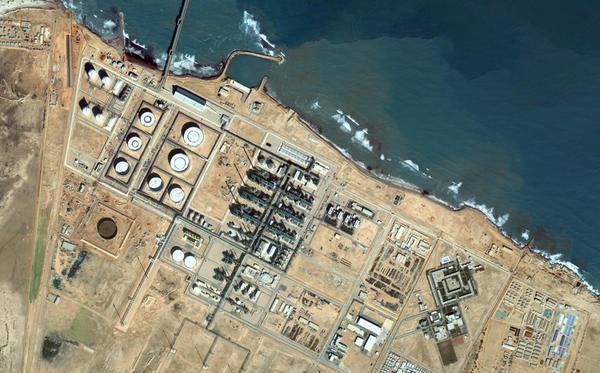Libya: An eldorado for multinational corporations
Behind the veil of political and environmental challenges, Libya, in 2024, unveils itself as the next eldorado for astute multinational corporations. With the pressing need for reconstruction, particularly in Derna, this resource-rich country emerges as a tapestry of opportunities for companies ready to invest in the future. The international conference announced in Derna is more than a mere diplomatic gathering. It symbolises an emerging market, poised to welcome audacious firms. And who better to lead the charge than China, a superpower acknowledged for its ability to identify and capitalise on fresh commercial opportunities. However, China isn't alone in this race. Libya's potential,
NABLA Business Lawyers Group: Strategic entry into the African market
The imminent establishment of NABLA Business Lawyers Africa in Tunisia marks a significant strategic advance for the NBL group, paving the way for a range of business opportunities not only in Tunisia but also in North Africa and beyond. Tunisia, with its geographical position and historical ties, serves as a natural hub for trade and investment throughout the region. Nearby, Libya, despite its challenges, is a fertile ground for investments, especially with its current quest for reconstruction. Algeria, in transition, is seeking to diversify its economy beyond hydrocarbons, offering opportunities in renewable energies, technology, and other sectors. Egypt, a bridge between
Investing in hotel takeovers in Spain: trends to watch in 2023
Spain remains one of the world's favourite tourist destinations. Although the Covid-19 pandemic hit the Spanish tourism sector hard in 2020 and 2021, the outlook is positive for 2023 after the recovery in 2022, particularly with the expected return of European tourists. Against this backdrop, investing in the takeover of existing hotels in Spain could represent an interesting opportunity. The recovery should initially be driven by domestic and European tourism, before extending to tourists from further afield. Savvy investors will target hotels in regions that traditionally attract local and European tourists. The popularity of flat stays and holiday rentals will
Property market trends in Spain in 2022-2023
The Spanish property market recovered strongly in 2021 after the health crisis, with transactions up by more than 34% compared with 2020. This momentum is set to continue in 2022 and 2023, underpinned by the economic recovery, still low interest rates and a growing appetite for the Spanish market among foreign investors. Demand is particularly strong for second homes on the Mediterranean coast and the Balearic Islands, with an increase in searches for houses with gardens and swimming pools since the pandemic. Major cities such as Madrid and Barcelona also remain very attractive. Foreign investors will be well advised to target
The evolution of the refined products market in the face of current challenges
The refined products market is currently going through a complex period, marked by a number of determining factors. Firstly, global demand for fuels is set to slow in 2022-2023, as a direct result of the gloomy economic climate. According to the IEA, oil consumption is set to grow by just 2 million barrels a day in 2022 and 2023, half the initial forecast. This is putting pressure on petrol and diesel consumption. Added to this is the acceleration of the energy transition, with the growing adoption of electric vehicles in several regions of the world. Sales of electric vehicles have risen
The intersection of technology and cybersecurity
The intersection of technology and cybersecurity: an analysis of investment opportunities June 09, 2023 - economics and finance Rapidly evolving technology has always been a boon for investors. However, as we venture further into the digital world, cyber security has become a major concern. This article examines the current technology and cybersecurity landscape, identifies key indicators for the sector and offers recommendations for investors. Analysis of the technological and cybersecurity landscape The global cyber security market, valued at $167.1 billion in 2020, is expected to reach $366.10 billion by 2028, growing at a compound annual growth rate (CAGR) of 10.9% from 2021 to 2028.
The post-COVID-19 agri-food industry: Analysis and outlook
The COVID-19 pandemic has caused upheaval in all economic sectors, including the agri-food industry. However, even against this backdrop, the agri-food sector is proving resilient and offering investment opportunities. Understanding the sector's current trends and key indicators is essential for potential investors looking to navigate this complex landscape. Analysis of the post-COVID-19 agri-food sector The pandemic has amplified many existing trends while creating new ones. In 2022, the global agri-food market was estimated to be worth US$8.04 trillion and is expected to grow at a compound annual growth rate (CAGR) of 3.1% from 2023 to 2028. 1. Technological innovation: The adoption of technologies
Latin America and the Caribbean: from challenges to investment opportunities
Latin America and the Caribbean, despite the economic difficulties exacerbated by the COVID-19 pandemic, present attractive new investment opportunities for those ready to embrace change. According to a recent report by the Economic Commission for Latin America and the Caribbean (ECLAC), combined with insights from the International Monetary Fund (IMF) and the World Bank, it is clear that the current challenges can be transformed into a platform of opportunities for savvy investors. Green transition and sustainability: Latin America and the Caribbean are increasingly attracting investment in clean energy, reaching around $18.4 billion in 2020, according to the IMF report. The potential
Beyond borders: Joining forces to solve global challenges
In an increasingly interconnected world, we can no longer afford to think only in terms of national borders when tackling global issues such as climate change, poverty and sustainable development. It is imperative that we unite our efforts and work together to tackle these global challenges, as they affect us all, regardless of nationality or borders. International organisations, such as the World Trade Organisation (WTO), the United Nations Conference on Trade and Development (UNCTAD), the International Monetary Fund (IMF), the World Bank and the Organisation for Economic Cooperation and Development (OECD), play a crucial role in promoting cooperation and coordinating policies
RGPD: 6 years on, where do we stand? Discover our in-depth analysis of the remaining progress and challenges!
With the General Data Protection Regulation (GDPR) now six years old, it is essential to assess the progress made in protecting the data and privacy of European citizens, while considering the practical implications for businesses. As a business law firm, we have reviewed the relevant sources and incorporated practical considerations into this contribution. The GDPR, which has been in force since 2018, has undoubtedly improved the protection of personal data and increased privacy awareness. Companies have invested heavily in RGPD compliance, putting in place internal policies and mechanisms to protect their customers' data. EU citizens now have stronger data protection rights. However,











